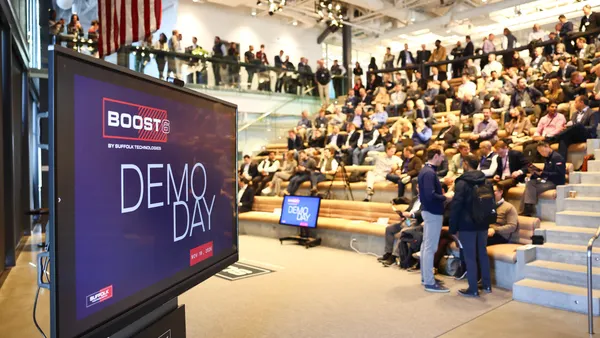Dive Brief:
-
The Massachusetts Bay Transportation Agency (MBTA) has cancelled CH2M Hill's $57 million contract to manage the $2.3 billion Green Line light-rail extension because a consortium that includes CH2M's new parent, Jacobs Engineering, is one of the finalists bidding to build the project, according to the Boston Globe.
-
To avoid a conflict of interest, the MBTA will negotiate with runner-up HAKS for the management contract.
-
The change will not delay the construction schedule. The MBTA has informed the Federal Transit Administration, which has committed to a grant of $1 billion for the project, but it must still get the OK from the agency's Fiscal and Management Control Board.
Dive Insight:
As more large construction and engineering companies merge in anticipation of a potential $1 trillion infrastructure spending program, something like the Green Line scenario could play out elsewhere in the country.
This summer alone has seen a few big deals tailored to the trend. In addition to Jacobs' $2.85 billion purchase of CH2M, AECOM announced in July that it would acquire California-based infrastructure contractor Shimmick Construction for $175 million.
That continues an M&A trend in the AEC sector driven by the desire to compete on massive projects that have long timelines and require a mix of competencies. The result is just a handful of competitors for major projects, often teaming up via joint venture.
Such partnerships are more about practicality than monopoly, however. As big as they are on their own, these companies join forces to spread the risk and share their bonding capacity, Lawrence McLaughlin, partner at Honigman Miller Schwartz and Cohn, in Detroit, told Construction Dive last year.
AEC firms also will team up to take advantage of each other's expertise, be it technical, political or otherwise.
Larger firms may also take on a smaller partner if that company qualifies as a minority-, woman- or veteran-owned enterprise. That helps the company meet minority participation goals while giving the smaller company experience on a project that would most likely be too large for it to handle on its own.












